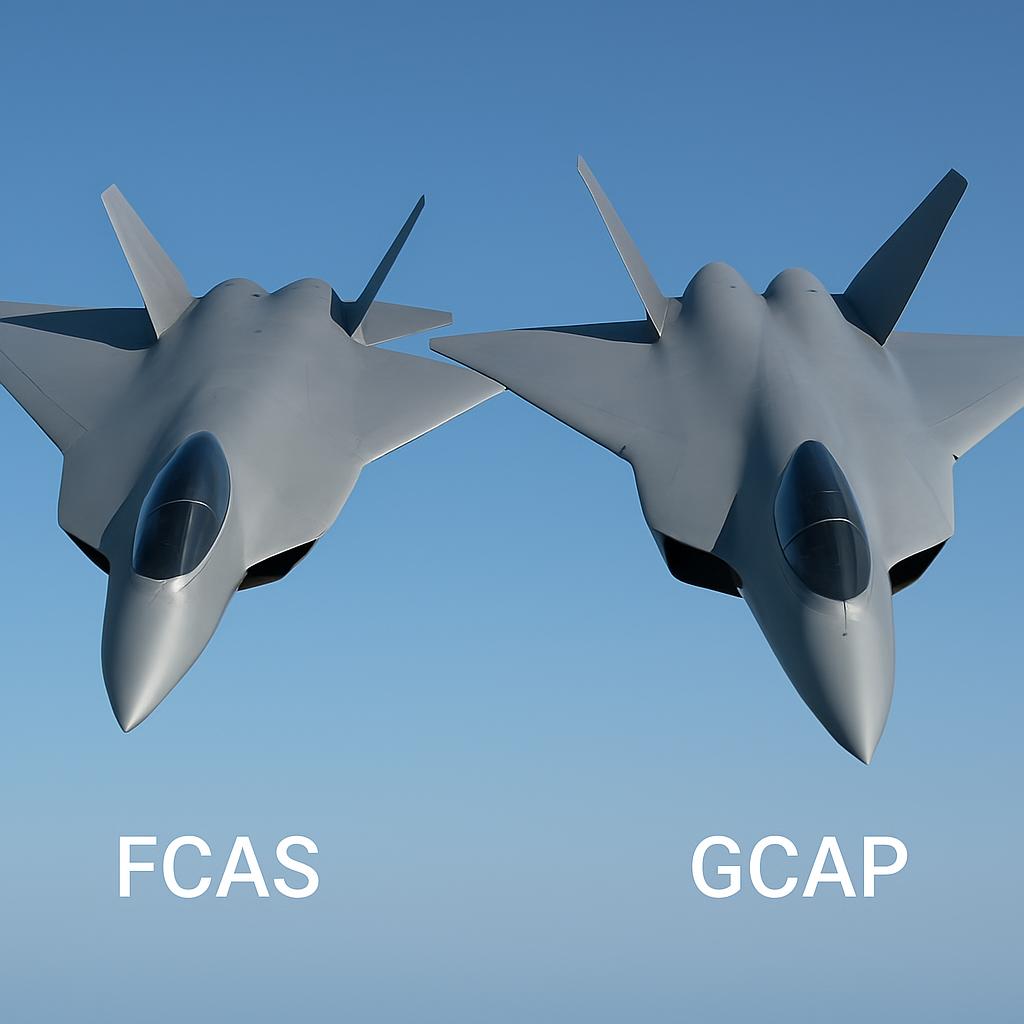Germany’s Strategic Crossroads: Which Path for Next-Generation Fighter Development?
The Future Combat Air System (FCAS) program stands at a critical juncture, with tensions between its primary industrial partners threatening to derail what was once heralded as Europe’s most ambitious defense collaboration. As Dassault CEO Éric Trappier’s recent demands for French program supremacy at the Paris Air Show have highlighted, the fundamental question is no longer just about industrial workshare. It’s about whether Germany will remain committed to FCAS or pursue an alternative path.
The standoff between Airbus and Dassault was highlighted with Trappier’s public assertions that French leadership is essential for technological superiority directly challenging the partnership’s foundational principle of equal contribution and equitable work distribution. Jean-Brice Dumont of Airbus Defense and Space acknowledged that “cooperation isn’t an easy endeavor,” but his measured response barely concealed the growing frustration with French demands for dominance in a program where Germany contributes an equal financial share.
This industrial tension reflects deeper strategic divergences. France’s anxiety about meeting its 2045 timeline which is driven by concerns over maintaining its air-launched nuclear deterrent has created pressure to streamline the program in ways that could marginalize German and Spanish contributions.
Nonetheless, Germany’s strategic calculus has been fundamentally altered by multiple converging factors. The nation’s participation in the F-35 program has provided intimate knowledge of fifth-generation fighter capabilities and American defense industrial practices. Simultaneously, German industry’s extensive engagement in supporting Ukraine’s drone warfare operations has generated practical experience in unmanned combat systems that directly parallels the collaborative combat aircraft component of FCAS.
This dual exposure, to American fighter technology and real-world drone warfare, positions Germany uniquely among FCAS partners. Unlike France, which has largely maintained its defense industrial independence, or Spain, which remains the program’s weakest industrial participant, Germany now operates at the intersection of European ambition and proven American capability.
The Global Combat Air Program (GCAP), jointly pursued by the United Kingdom, Italy, and Japan, presents an increasingly attractive alternative for Germany. This partnership offers several advantages over the FCAS program: established industrial relationships through the Eurofighter consortium, alignment with Germany’s existing F-35 commitments, and partners with demonstrated expertise in advanced military aviation.
Germany’s shared experience as a Eurofighter partner with Britain and Italy creates natural industrial synergies that the FCAS program has struggled to achieve. The addition of Japan brings advanced technological capabilities and significant financial resources, potentially offering Germany a more balanced partnership than the French-dominated FCAS structure.
The conflict in Ukraine has accelerated Germany’s understanding of modern warfare’s evolving nature. German industry’s direct involvement in developing and supplying drone systems for Ukrainian forces has provided invaluable real-world feedback on unmanned combat effectiveness. This experience gives Germany a practical advantage in understanding how crewed and uncrewed systems must integrate which is actual combat knowledge that transcends the theoretical frameworks driving FCAS development.
Moreover, Ukraine has demonstrated the critical importance of interoperability with allies, particularly the United States. Germany’s F-35 procurement decision already reflects this reality, and the GCAP program’s emphasis on compatibility with existing allied systems may prove more strategically valuable than FCAS’s more insular European approach.
As Aviation Week reported, the coming months will determine whether FCAS evolves “from arranged marriage to amicable future or heads toward toxic divorce.” With Phase 1B funding expiring next year and thousands of engineers potentially facing reassignment, the program’s window for survival is rapidly closing.
The F-35 program has already demonstrated that Germany can successfully integrate American defense technology while maintaining its industrial base. GCAP could offer similar benefits within a more balanced European framework.
Germany’s decision will likely hinge on whether the defense ministers from the three FCAS nations can “hammer out differences and give clear guidance,” as industry observers suggest. However, with France’s nuclear timeline driving increasingly stringent but understandable demands and Germany’s strategic options expanding through its F-35 participation and Ukraine experience, the path toward other European alternatives may prove irresistible.
The featured image was generated by an AI program.

